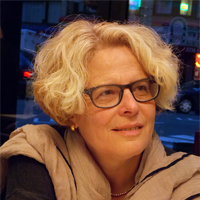Think of our response to war, famine, or natural disaster. Fire fighters, evacuation teams, and emergency shelters come to mind. The unsung heroes, however, are the social workers who assist and organize, comfort, console and advocate for crisis victims day after day, month after month.

A new book by Professor Orit Nuttman-Shwartz of Sapir College, Social Work under Fire: Theory, Research and Intervention, is set to be a standard text for the profession.
Drawing on Israel’s long history of building social resilience in the face of military conflict – not least of all in the Gaza envelope where Sapir is located - this book tells the stories of people and communities struggling in the face of war and terrorism. Above all, it focuses on the social workers who guide them, both during the crisis and long after national attention shifts elsewhere. Physical damage can be repaired quickly, but psychological trauma is enduring. What unique challenges arise? Which methodologies have proven effective? And what about the social workers themselves who must maintain their own emotional balance and resilience after countless weeks of crisis intervention? The book launch, scheduled for November 22nd, 2022, will be a seminal event for the social work profession – in Israel and around the world.
More News

“Law and the Holocaust” Led by Justice Esther Hayut

